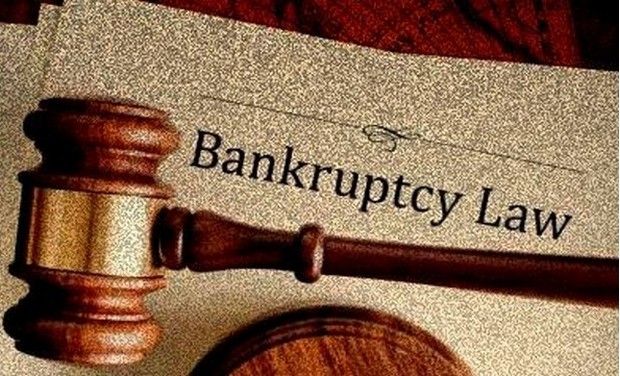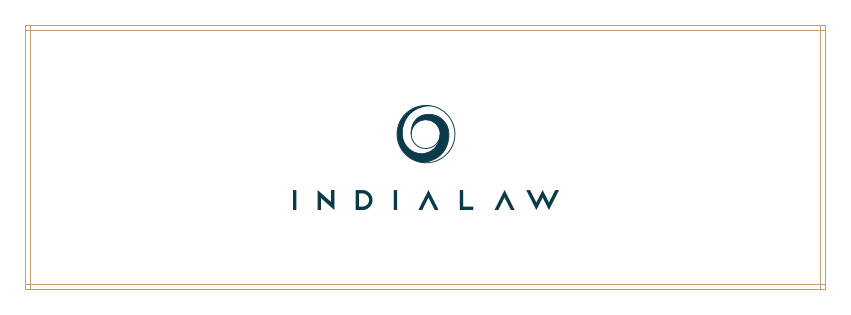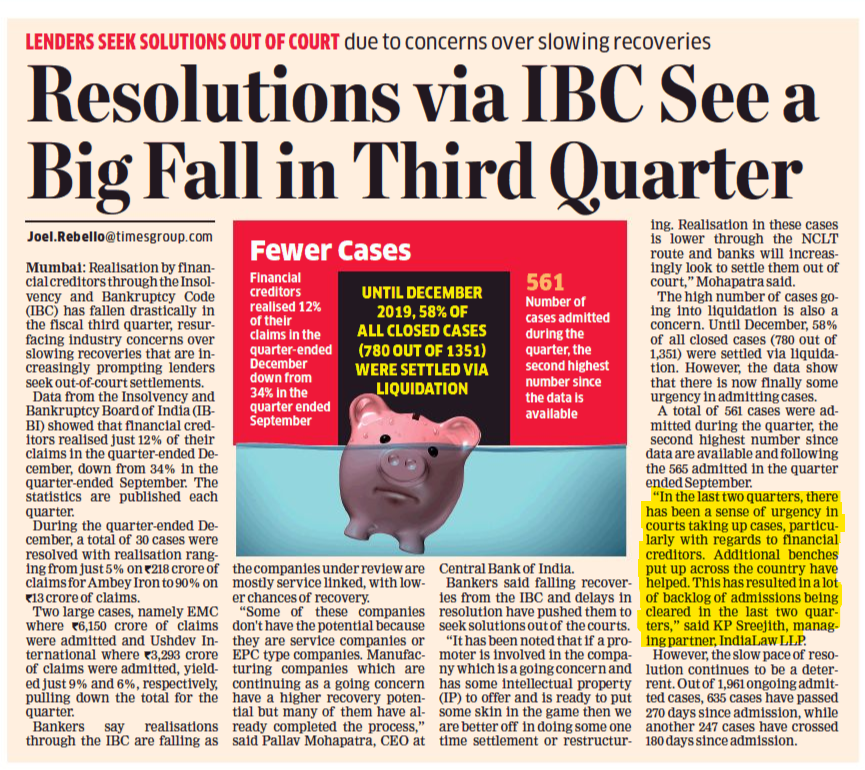SC Rules Directors have no right to file appeal on behalf of the company after the appointment of Insolvency Professional


In one of the first substantive ruling of the Supreme Court under Insolvency and Bankruptcy Code 2016(“the Code”), the Supreme Court held that once insolvency professional is appointed to manage the company, the erstwhile directors cannot maintain an appeal on behalf of the company. The Supreme Court was examining question of repugnancy between Maharashtra law and the Code while holding that in the event of any repugnancy between the state law and the Code, in respect of matters relating to bankruptcy and insolvency, the Code will prevail.
The appeal arose out of an insolvency proceeding initiated by ICICI bank & Ors against M/s. Innoventive Industries ltd before the National Law Company Tribunal (“NCLT”) Mumbai bench. The application was objected on the ground that the proceeding was already initiated under Maharshtra Relief Undertakings Special Provisions Act 1958 (“Maharashtra Act”). NCLT rejected the objection on the ground that the Code would prevail over the Maharashtra Act in view of the Non-Obstante Clause in Section 238 of the Code. The Debtor approached National Company Law Appellate Tribunal (“NCLAT”). NCLAT held that the Code and Maharashtra Act are not repugnant to each other as they operate on different field. Hence the debtor cannot take any advantage from Maharashtra Act to stall resolution process under the Code. The Debtor approached the Supreme Court against this order.
While delivering its judgment J. R.F. Nariman analysed various provisions of the Code in depth. The Hon’ble Judge also analysed Article 254 of the Indian Constitution and similar provisions in various other Constitutions which deals with the conflict or repugnancy between State Law and Central Law. The Hon’ble Judge noted the following points:-
(i) The question of repugnancy arises only if both the state law and central law relates to the subjects falling under the concurrent list of the Constitution of India.
(ii) Care should be taken to reconcile both the statutes so as to avoid repugnancy.
(iii) In the event of direct conflict between state and central legislature, the central legislation will prevail over the state legislation.
(iv) Even if there may be no direct conflict, a State law may be inoperative because the Parliamentary law is intended to be a complete, exhaustive or exclusive code. In such a case, the State law is inconsistent and repugnant, even though obedience to both laws is possible, because so long as the State law is referable to the same subject matter as the Parliamentary law to any extent, it must give way. One test of seeing whether the subject matter of the Parliamentary law is encroached upon is to find out whether the Parliamentary statute has adopted a plan or scheme which will be hindered and/or obstructed by giving effect to the State law. It can then be said that the State law trenches upon the Parliamentary statute.
(v) The only exception to the above is when it is found that a State legislation is repugnant to Parliamentary legislation or an existing law if the case falls within Article 254(2), and Presidential assent is received for State legislation, in which case State legislation prevails over Parliamentary legislation or an existing law within that State. Here again, the State law must give way to any subsequent Parliamentary law which adds to, amends, varies or repeals the law made by the legislature of the State, by virtue of the operation of Article 254(2) proviso.
Applying the above rules, the Supreme Court held that the Maharashtra Act is repugnant to the Code and the Code will prevail over the Maharashtra Act.
The Court also made an important observation which will have far reaching consequences. The Court held that once insolvency professional is appointed to manage the company, the erstwhile directors who are no longer in the management of the company cannot maintain an appeal on behalf of the company. This will affect various appeals pending before NCLAT.
Innoventive Industries Limited Vs. ICCI Bank & Anr Civil Appeal Nos. 8337-8338 0f 2017



